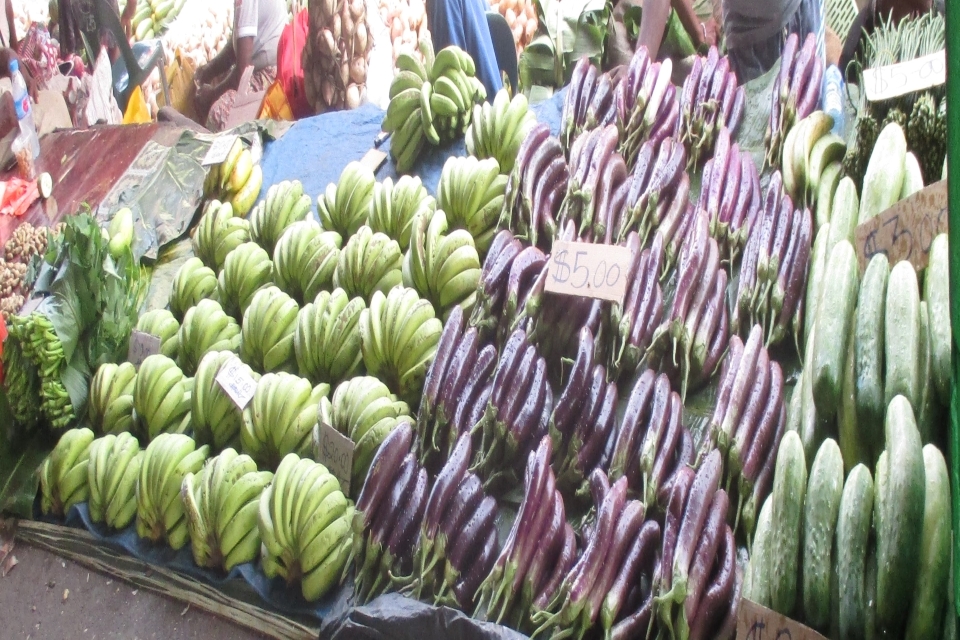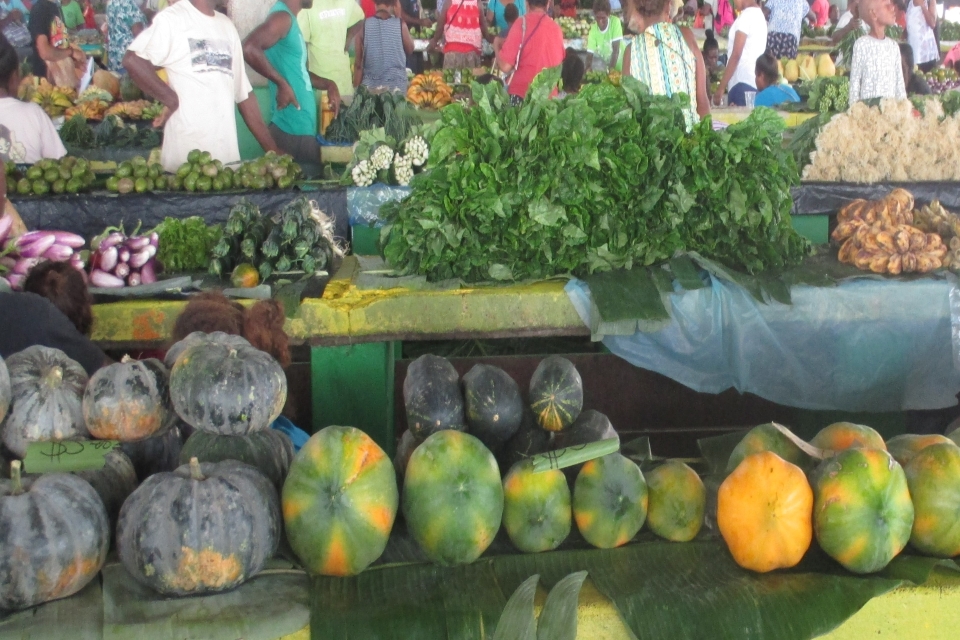BY JOHN HOUANIHAU
IT is lacking to see most homes, people, families, or communities in the Solomon Islands eat a balanced diet in their daily meals, says Ministry of Agriculture and Livestock Permanent Secretary Lottie Vaisekavea.
Based on this year’s World Food Day theme ‘Leave no one behind for better production, better nutrition, better environment, and a better life, Permanent Secretary Lottie Vaisekavea told ENVIRONMENT MEDIA that food is a basic central requirement for human beings and having a balanced food diet is important.
Lottie said as a leader of the country’s agriculture sector, food is really important. It is a basic fundamental requirement for every human being.
“Most homes in the Solomon Islands do not have balanced food which is a fact. It is visible whenever visiting homes where it means that few insufficiencies are existing,” he said.

The Ministry of Agriculture and Livestock Permanent Secretary warned that every home in the country should stop, consider and think deeper about the food they consumed because it has many dimensions.
“It affects health, mind, and spiritual welling, therefore people should consider how they choose foods to eat and prepare foods.
“It is also the choice of everyone to motivate each other at the family or at the community level to grow enough food that would provide a balanced meal every single day.
“We must translate the meaning of whatever we have in the ground to have a balanced meal every day, so the kids are healthy, mother and father as well as the whole community, which means the Solomon Islands will be a healthy nation as well.

“But it is a step to be undertaken, practical steps. It doesn’t happen overnight,’’ Lottie said.
Nevertheless, he said that the government through his MAL is committed to supporting the sector to have balanced meals or foods in homes.
“The government and the MAL are committed to supporting the country to make it happen and come reality and possible in various homes and communities,” he said.
On a similar note, Jenny Sao from the Nutrition Unit of the Ministry of Health and Medical Services (MHMS) said that it is important to eat balanced diet food and do daily exercise.
“It is important to eat according to portion size that would help us live healthily and stay healthy and always remember to keep fit or at least spend 30 minutes working each day.

“This is to get sweat in the body because when you take in more energy, you must also give out energy as well,’’ Sao said.
Here are the healthy diet key facts from the World Health Organisation (WHO):
- A healthy diet helps to protect against malnutrition in all its forms, as well as non-communicable diseases (NCDs), including diabetes, heart disease, stroke, and cancer.
- An unhealthy diet and lack of physical activity are leading global risks to health.
- Healthy dietary practices start early in life – breastfeeding fosters healthy growth and improves cognitive development, and may have longer-term health benefits such as reducing the risk of becoming overweight or obese and developing NCDs later in life.
- Energy intake (calories) should be in balance with energy expenditure. To avoid unhealthy weight gain, total fat should not exceed 30% of total energy intake (1, 2, 3). Intake of saturated fats should be less than 10% of total energy intake, and intake of trans-fats less than 1% of total energy intake, with a shift in fat consumption away from saturated fats and trans-fats to unsaturated fats (3), and towards the goal of eliminating industrially-produced trans-fats (4, 5, 6).
- Limiting the intake of free sugars to less than 10% of total energy intake (2, 7) is part of a healthy diet. A further reduction to less than 5% of total energy intake is suggested for additional health benefits (7).
- Keeping salt intake to less than 5 g per day (equivalent to sodium intake of less than 2 g per day) helps to prevent hypertension, and reduces the risk of heart disease and stroke in the adult population (8).
- WHO and the Member States have agreed to reduce the global population’s intake of salt by 30% by 2025; they have also agreed to halt the rise in diabetes and obesity in adults and adolescents as well as in childhood overweight by 2025 (9, 10).




